Part 5 – Which Diet is Right For You?
Scientists believe that the average person hosts about 500 toxic chemicals in his/her body, mostly within their fat tissues. These toxins may lead to serious health conditions such as infertility, liver damage, diabetes, brain damage, cancer, or death.
Ridding yourself of toxins through a healthy detox diet, combined with the right nutrients can help you:
- Dramatically increase your energy
- Reduce chronic achy pain
- Boost mental clarity
- Lose weight (if needed)
- Eliminate bloating, gas and other GI symptoms
- Remove excess water retention (swollen hands, ankles and feet)
- Have glowing, healthy skin, nails and hair
Step-by-step instructions, presentations, live Q&A sessions and more!
- Easy to follow diet, SAFE, gentle protocols (NO harsh chemicals or supplements, cleanses or purges!).
- By simply changing your diet and adding a couple of inexpensive over the counter supplements (optional), you can dramatically reduce your toxic load.
–> Learn more – Register for FREE HERE
to get information on accessing the FREE Zoom presentation, Q&A’s, handouts, recipes and more!
** If you can’t commit to doing the Detox Diet during the scheduled 2 weeks, simply grab the information and do it at your convenience. **
Register here and get your free registration gifts including, “What You Should Know About Organic Foods” Report
Part 5 Which Diet is Right For You?
The Carnivore Diet
The Carnivore Diet is an animal-based foods diet.
The principal theory behind the carnivore diet is controversial, and considers that pre-historic humans ate a meat-rich diet, and genetically our bodies would function best if we eliminated carbohydrates, including fruits and vegetables and ate only animal protein and fat.
The carnivore diet relies primarily on gluconeogenesis to provide the body with the necessary energy., whereby the body utilizes proteins to produce glucose, which acts as a source of energy in our body, and is usually derived from carbohydrates. Moreover, depending on the fat-protein ratio, the carnivore diet could also induce ketosis, which would utilize the fat to provide energy for the body.
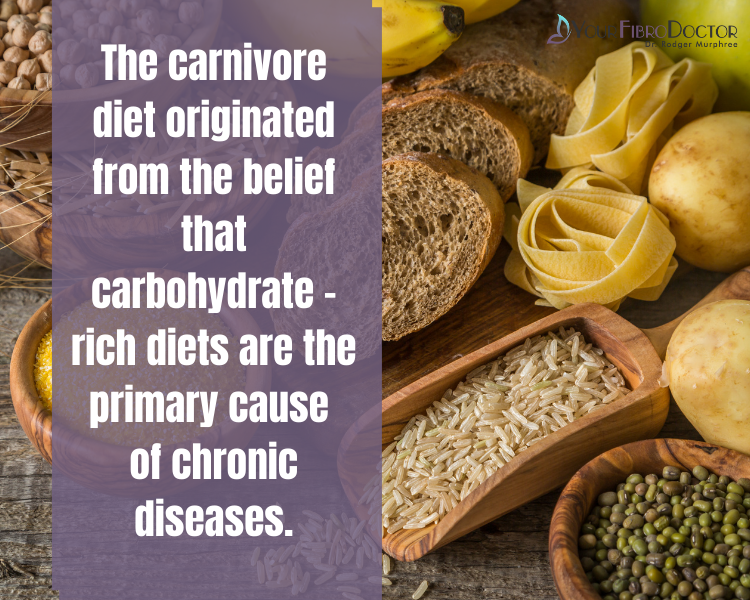
In fact Carnivore Diet advocate Paul Saladino, M.D., author of The Carnivore Code writes that farming is “the worst mistake in human history.”
Seriously? Saladino shares his views on how plants not animal are the villains in creating poor health. He warns about the dangers of plants and how lectins, flavonoids, plant antioxidants, turmeric, quercetin, and fiber trigger unwanted health issues.
The carnivore diet claims to promote weight loss, reduce mood swings, and improve blood sugar regulation.
Unlike the keto or paleo diet, the carnivore diet advocates for the complete elimination of carbohydrates.
People following the carnivore diet claim that it assists in weight loss, improved health, and pain reduction. However, these claims are not backed up by any scientific evidence.
So let’s dive into the few foods that are allowed on this diet, and those that are eliminated.
Foods that are allowed:
Including only animal products and excluding everything else, the following are the foods that can be consumed while on the carnivore diet.
- Red meat including beef, pork, and lamb, preferably fattier cuts of meat.
- Poultry, like chicken and turkey, or organ meats.
- Fish and seafood, like salmon, mackerel, herring, tuna, sardines, lobsters, crabs, and oysters.
- Animal products and foods like eggs, lard, bone broth, and bone marrow.
- Low lactose dairy, including butter, heavy cream, and hard cheeses like parmesan.
- Water.
- Salt, pepper, and any seasoning that has zero carbohydrate content.
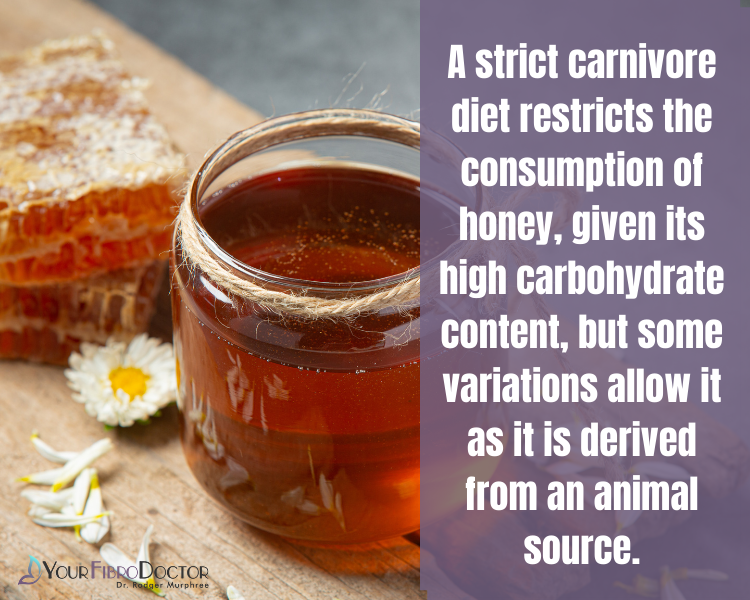
Foods that are restricted:
The carnivore diet eliminates any food that is not derived from animals. These are listed below.
- All vegetables and fruits
- Dairy products with high lactose content, like milk, yogurt, soft cheese, etc.
- Legumes like beans and lentils.
- Nuts and seeds like almonds, pistachios, pumpkin seeds, flax seeds, etc.
- All grains and grain-based products including rice, wheat, bread, quinoa, pasta, etc.
- All forms of alcohol including beer, wine, liquor, etc.
- Organic and refined sugars including table sugar, maple syrup, molasses, etc.
- Beverages other than water, including, tea, coffee, soda, fruit juice, etc.
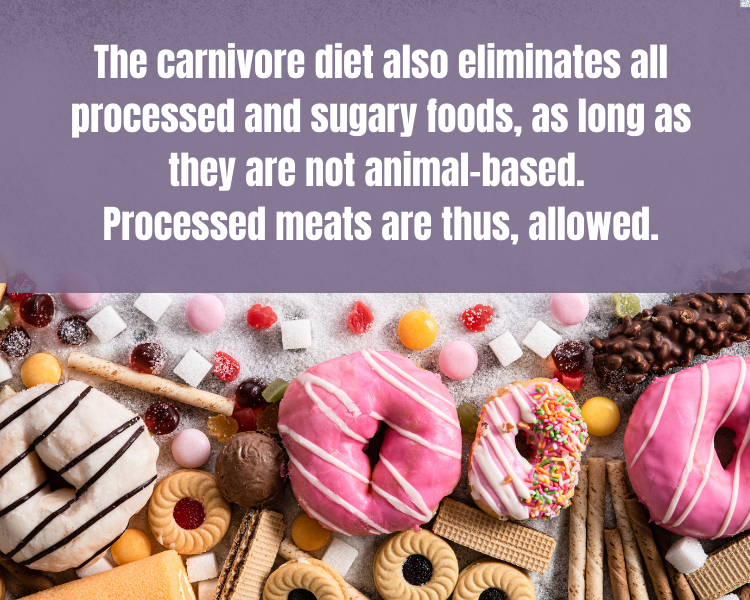
Benefits of the Carnivore Diet
While none of the purported benefits of the carnivore diet has been scientifically proven, people on this diet claim the diet helps in the following ways:
- Reduce bodyweight
- Control depression and anxiety
- Improve mood
- Manage diabetes
- Improve skin issues
- Reduce pain
- Manage digestive issues
- Manage arthritis and inflammation
The carnivore diet restricts all carbohydrates, and eliminates excess sugar and almost all processed and unhealthy foods, which can by default lead to weight loss, better blood glucose regulation, and can eventually help manage diabetes as well.
In this regard, the carnivore diet helps lose weight like most healthy diets.
The elimination of carbohydrates can also result in a better mood, as a sugar-rich diet can cause sharp changes in blood glucose levels, which can easily translate into irritability, inability to concentrate, and overall disruption in our mood. However for some, a no carb diet can also cause brain fig and low moods.
While meat consumption can cause lesser inflammation, high amounts of animal fat can also cause inflammation (increased arachidonic acid), hence anti-inflammatory claims of this diet are not substantiated.
Risks and Side-Effects of Carnivore Diet
Consisting only animal-based foods, the carnivore diet runs the risk of being high in saturated fat and cholesterol. Similar to the Keto diet, this isn’t a real concern, as studies show both diets can lower cholesterol and blood fats.
True eating foods rich in saturated fat can increase LDL (bad cholesterol) levels, which increases the risk of coronary diseases. However, eliminating simple carbs most likely reduces LDL for most folks.
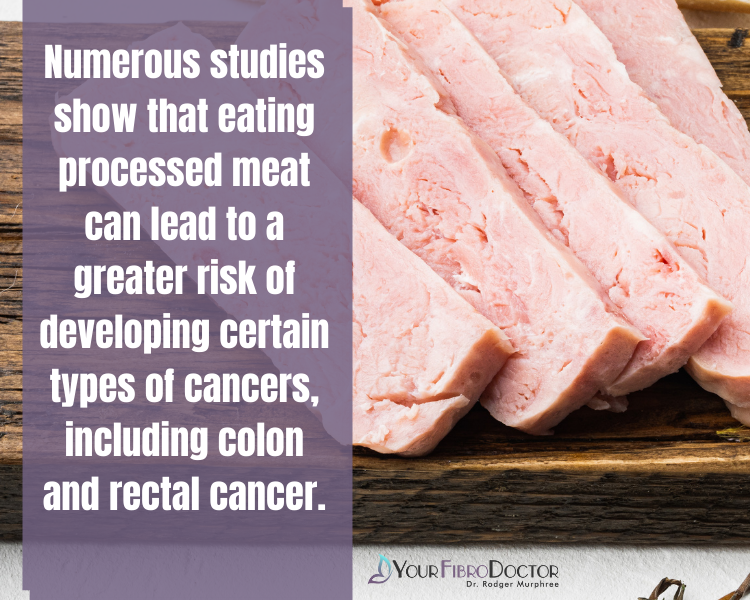
By eliminating nutrient-rich foods like fruits, vegetables, legumes, and whole grains, the carnivore diet can lead to nutrient deficiencies, as all of these foods contain various nutrients like vitamins, minerals, and antioxidants.
Although meat has certain nutritional value, and provides micronutrients, a healthy diet cannot be composed only of meat. Hence, being extremely restrictive, the carnivore diet can result in deficiencies in certain nutrients while leading to the excess of other nutrients.
Saladino disputes the idea you can’t get enough nutrients from animal products alone. I’m skeptical.
Antioxidants present in plant-based foods provide multiple health benefits and promote heart and brain health, supports longevity, reduces inflammation, etc. This is greatly curtailed in the carnivore diet.
The carnivore diet also removes fiber from our diets as it is only provided by plant foods. Fiber is a non-digestible carbohydrate that supports gut health and promotes healthy bowel movements. Hence the absence of fiber in the carnivore diet can lead to constipation.
Given that fiber is crucial for maintaining a healthy balance of bacteria in our gut, cutting out fiber can severely impact our gut health, leading to multiple health issues, and can also lead to diminished immunity and colon cancer.
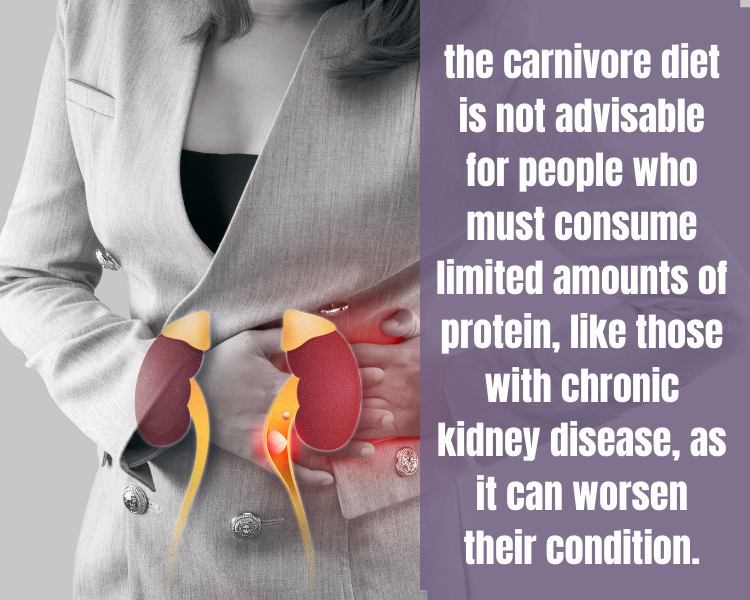
Summing It Up
While both the Keto diet and the carnivore diet restricts carbohydrates, the Keto diet does not eliminate them. Since carbohydrates are the preferred food source for energy production in the body, and also contain fiber that promotes satiety and better gut health, eliminating carbohydrates, especially from plant sources like vegetables, is not advisable.
The Keto diet also has multiple health benefits, all of which have been scientifically proven, though some need further research. On the other hand, the benefits associated with the carnivore diet have not been established scientifically. Adding the risks associated with the carnivore diet, comparing these two diets, the Keto diet is clearly the better choice.
Nevertheless, both these diets must be undertaken with serious precaution, and after consulting a doctor.
Personally it will take more time and research for me to become comfortable with the Carnivore diet.
For now I don’t think plants pose a threat to our health. In fact as macro biotic and other plant based diets have shown, plants have multiple health benefits including preventing and for some reversing certain cancers.
The Carnivore diet, like the Keto diet is great at helping one lose weight, but I’d have a hard time recommending this diet, at least long term.
If you want to lose weight fast, usually half a pound a day, then check out the diet my patients use at www.2Transformhealth.com

To ensure you’re getting the nutrients you need for optimal cellular health I recommend eating a healthy diet and taking a digestive enzyme with each meal.
Essential Therapeutics Digestive Enzymes – 15% OFF (discount code: AUG21DE)
Step-by-step instructions, presentations, live Q&A sessions and more!
- Easy to follow diet, SAFE, gentle protocols (NO harsh chemicals or supplements, cleanses or purges!).
- By simply changing your diet and adding a couple of inexpensive over the counter supplements (optional), you can dramatically reduce your toxic load.
–> Learn more – Register for FREE HERE
to get information on accessing the FREE Zoom presentation, Q&A’s, handouts, recipes and more!
** If you can’t commit to doing the Detox Diet during the scheduled 2 weeks, simply grab the information and do it at your convenience. **
Register here and get your free registration gifts including, “What You Should Know About Organic Foods” Report



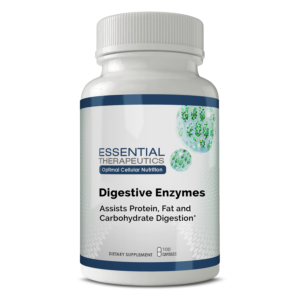



Leave a Reply
Want to join the discussion?Feel free to contribute!